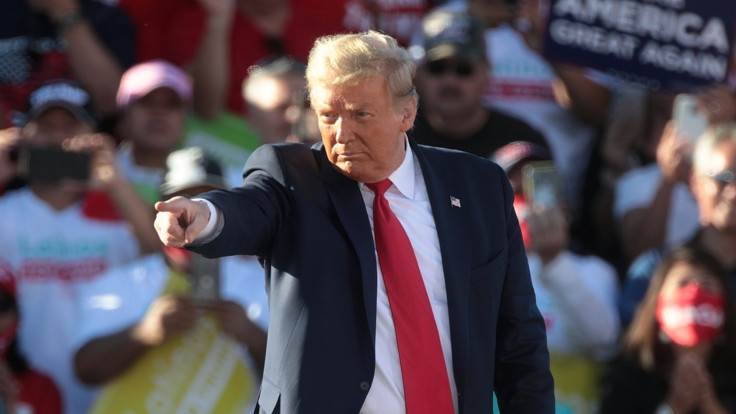Trump Mocked Worldwide After Epstein Emails Brand Him 'Least Popular Paedophile'
Primary documents posted by Congress indicate Epstein told confidantes a victim 'spent hours' at his house with Donald Trump

Donald Trump was ridiculed across social media this week after newly released emails from Jeffrey Epstein's estate suggested the president was an unwelcome presence in the paedophile's house, prompting a wave of mockery that described him as the 'least popular pedophile' among victims.
House Democrats on 12 November 2025 published a tranche of documents from the Jeffrey Epstein estate that included direct emails from Epstein describing a victim who had 'spent hours' at his house with Donald Trump and another message saying Trump 'knew about the girls'.
The material, posted by the House Oversight Committee, landed at the centre of an immediate political storm as the White House sought to dismiss the disclosures as selective and politically motivated. Online, comedians, public figures, and ordinary users seized on a now-viral, redacted exchange in which an invitee wrote that she would 'wait for my time' because she did 'not want to come early to find Trump in your house,' turning the documents into a sustained public rebuke.
What The Emails Actually Say
The House Oversight Committee released three specific items on 12 November 2025, including an April 2011 email from Jeffrey Epstein to Ghislaine Maxwell that reads: 'i want you to realize that that dog that hasn't barked is trump.. [VICTIM] spent hours at my house with him ,, he has never once been mentioned.'
The committee supplied scanned images and a three-page PDF of the correspondence that show redactions but preserve the core passages that mention Trump's alleged presence at Epstein properties. Another email to Michael Wolff from Epstein says, in truncated form, that Trump 'of course knew about the girls as he asked ghislaine to stop'.
It’s not just that he’s a pedophile, he was the least popular pedophile https://t.co/9CqGeHKmbO
— gianmarco (@GianmarcoSoresi) November 13, 2025
Emails authored by Epstein himself require corroboration before they can sustain allegations, yet they carry weight because they are contemporaneous to the period when Epstein trafficked underage victims and because Epstein, repeatedly, sought to use information about others as leverage.
The Political Fallout And Official Responses
The White House immediately dismissed the release as a partisan leak aimed at damaging the president. Press secretaries characterised the disclosures as cherry-picked and insisted the administration would not be distracted.
Republicans on the Oversight Committee produced a larger backup tranche of documents the same week, arguing the release was selective and politically timed. Congress is prepared to debate whether more of the Epstein files should be unclassified and released in full.
Yet the political defence struggled to blunt the court of public opinion. Conservative commentators acknowledged the optics were poor, while others characterised the release as an attempted political ambush.
Prominent public figures used the emails to lampoon the president, and the phrase used by the invitee about not wanting to 'come early to find Trump in your house' became a viral shorthand in a matter of hours.
What Comes Next
Lawmakers face an immediate choice: press for the full release of all files in government possession or accept the partial tranches that have been produced so far. Oversight Democrats called for the Department of Justice to open its entire Epstein file to the public; Republicans countered that more context and balance are needed.
Meanwhile, journalists and forensic researchers are already mining the documents for corroboration, travel logs, and attachments that could substantiate or complicate individual claims.

For the president, the immediate hazard is reputational. Even where allegations in the documents fall short of criminal proof, the cumulative effect of contemporaneous references, corroborating travel notes, and the raw language captured in Epstein's own emails has created a persistent political nuisance.
Online mockery may be flippant, but it reflects a broader problem: once primary documents enter the public archive, they resist easy containment. The political calculus now shifts from denials to damage control and legal strategy, while survivors demand the transparency they say is overdue.
© Copyright IBTimes 2025. All rights reserved.





















